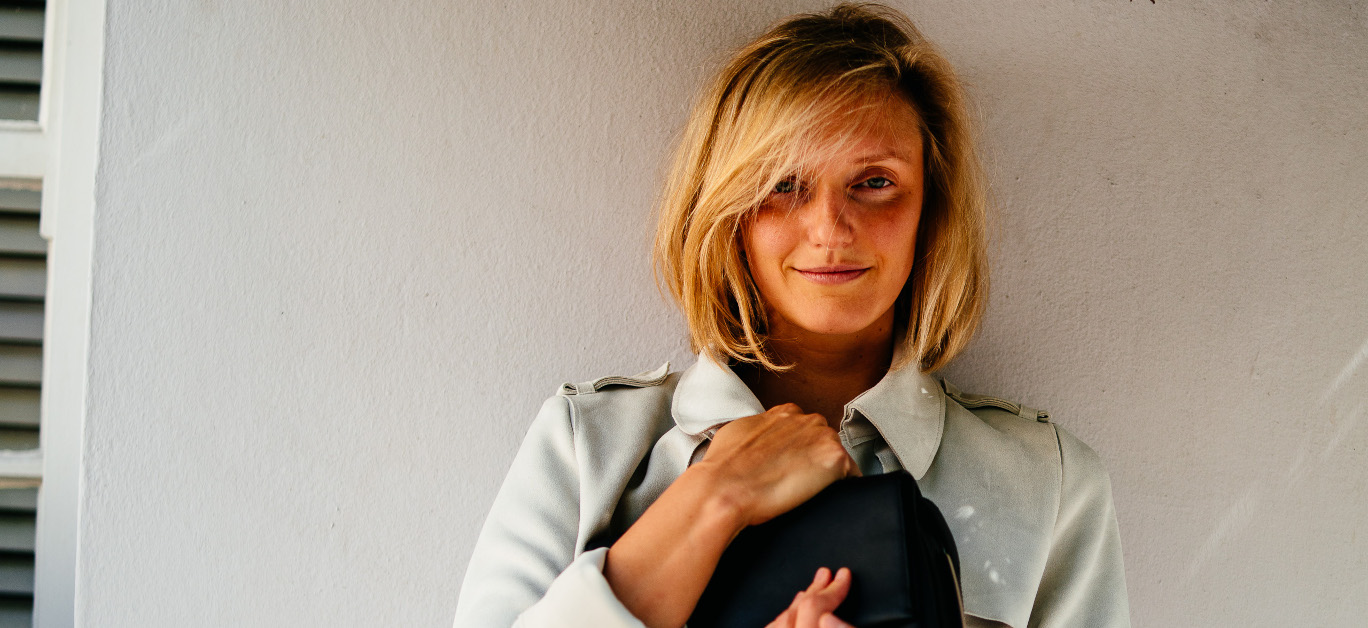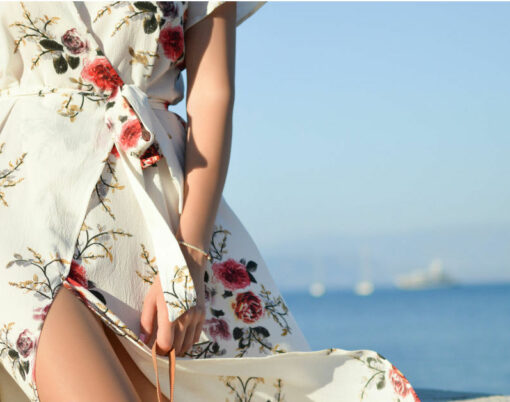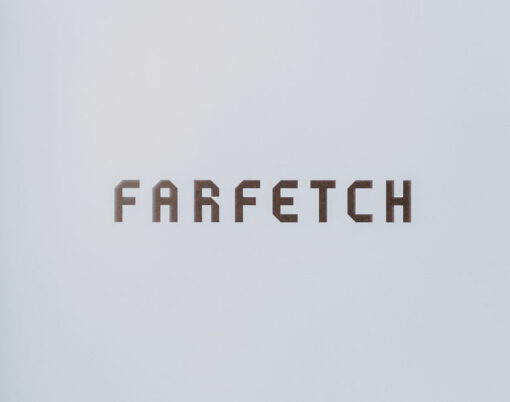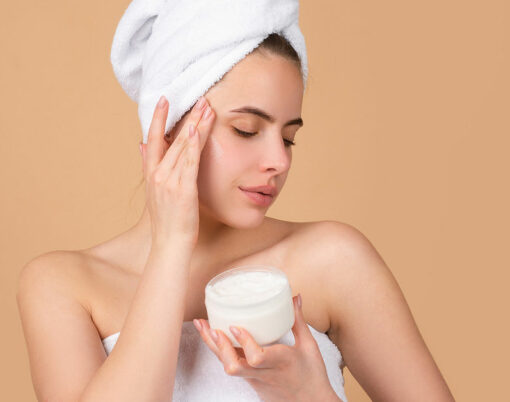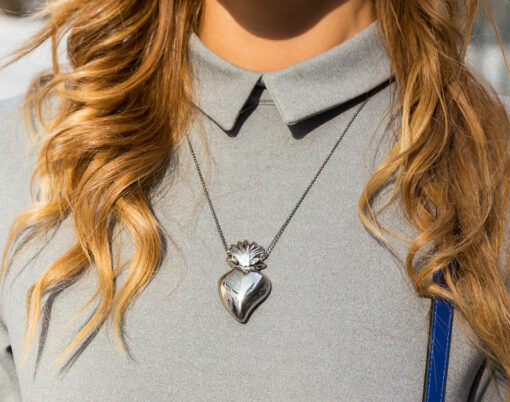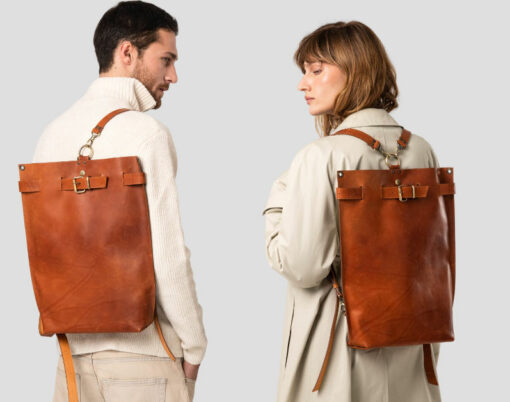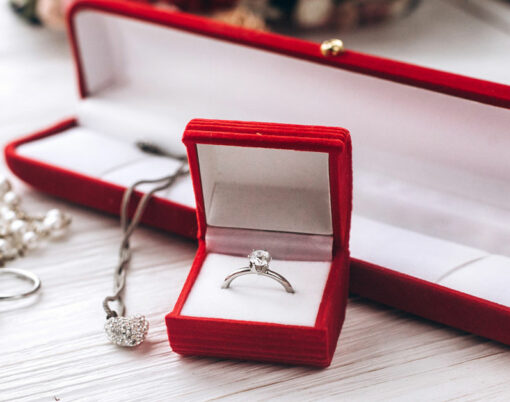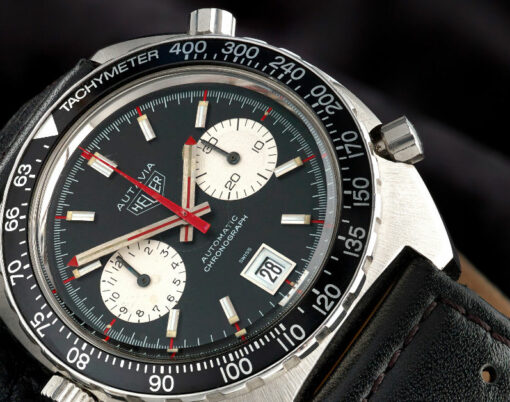With environmental concerns around the use of leather growing, it’s no surprise that brands are now looking towards more sustainable options. With the likes of Stella McCartney embracing sustainability with her range of vegan handbags, the industry is starting to take notice.
A rising star in the world of luxury, LUXTRA has been leading the way in designing vegan handbags since 2018. Founded by Jessica Kruger, this luxury brand makes handbags from apple skin, cactus skin, pineapples and other sustainable materials. Since all the products are beautifully handmade in Italy, they have access to the latest technologies and are testament that luxury can embrace sustainability and retain that same beautiful finish. Proving that materials do not need to come from animals to be luxurious, Jessica hopes that leather alternatives will replace real leather in the luxury industry in time.
Using products that advocate non-cruelty to animals is so important to Jessica, whose barefooted outdoor upbringing in Sydney, Australia fostered her love and respect for nature. Moving to Europe in 2009 she completed her MBA in Paris and lived between Geneva and Berlin before settling in London where she created the award-winning vegetarian restaurant, ETHOS. Prior to Covid-19, ETHOS was one of London’s most popular vegetarian restaurants and was awarded five- stars by Time Out magazine, Jessica was also named a ’35 under 35′ top UK businesswomen by Management Today. Jessica sold Ethos and has now launched LUXTRA, a sustainable fashion brand that uses plant-based vegan leathers to make timeless accessories.
We sat down with Jessica to find out a little more.
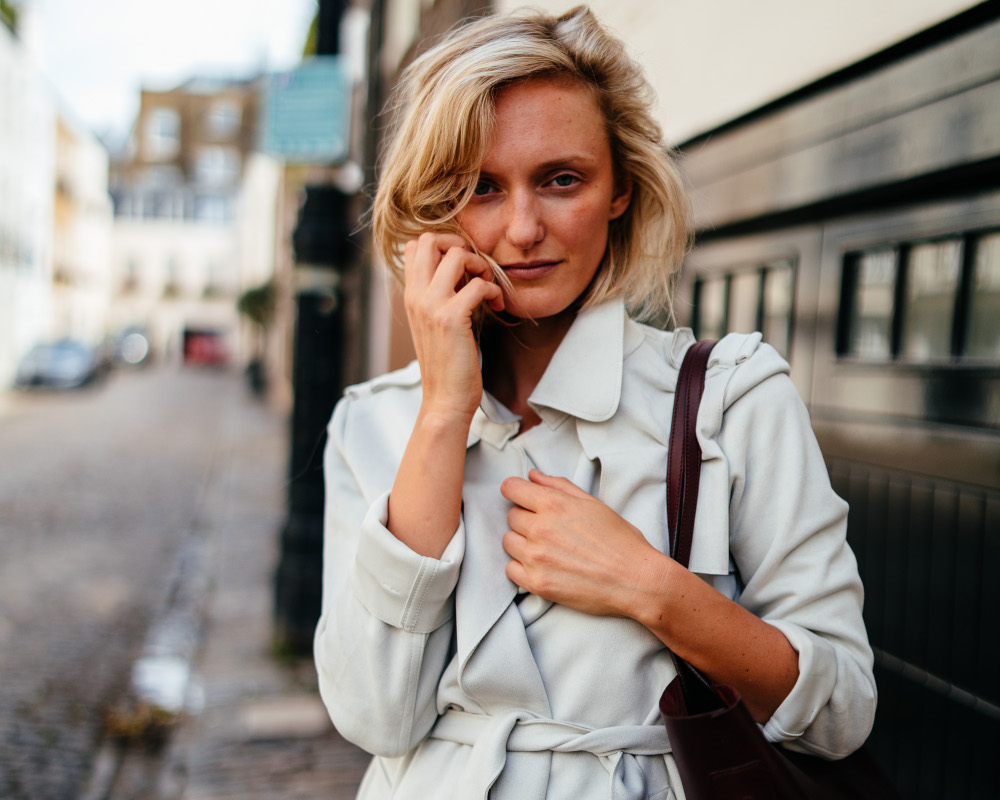
How did you first come up with the idea of LUXTRA?
The idea for LUXTRA first came to me around 2015, when I was running my restaurant, ETHOS. I’d started my cruelty-free journey in 2012, which had led me to start the restaurant. When you change the way you eat, it’s not long until you start looking at other areas of your life – skincare, make-up, clothing, fashion accessories, etc – and asking yourself how to make those more planet- and animal-friendly.
I’ve always loved handbags. In 2016, apart from Stella McCartney, there were no major brands making beautiful non-leather bags, backpacks, or wallets. so that was what I set out to do with LUXTRA.
What elements of your brand are important to you which illustrate your brand values and culture?
The most salient is our B Corp certification: it’s a really tangible way for customers to understand that ‘yes, that brand is walking the walk, and talking the talk’ when it comes to sustainability. I’d also say that the brand is quite transparent. The materials with which we work are not perfect (they do contain a percentage of plastic, for example) but we explain why we choose this material over others. We also receive positive feedback about our weekly newsletter, in which I write about different aspects of sustainability – people really appreciate the fact that I talk about the compromises that have to be made, and that I shine a light on hard truths in the industry.
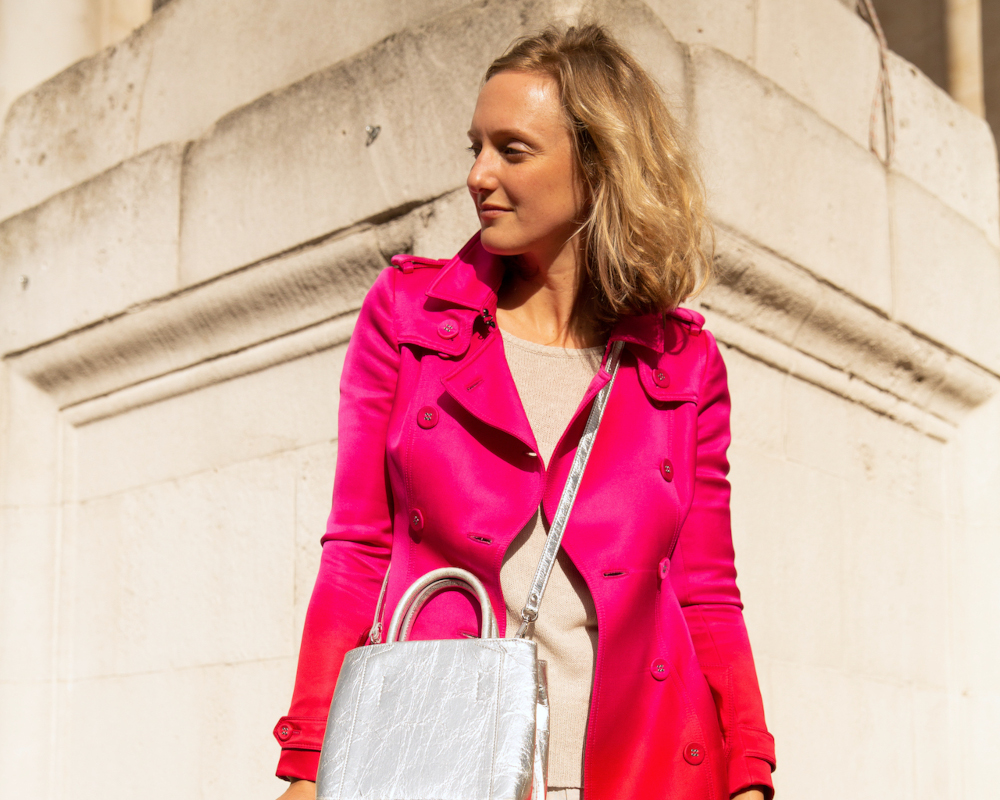
LUXTRA make luxury vegan handbags, tell me about the bags and the profile of customer they appeal to?
Rather than describing our customers with traditional demographics (age 34 – 55, city dwellers, etc), what unites LUXTRA customers is that they love beautiful things, but they are also super interested in, and concerned about the state of our planet. I think (I hope!) that they see LUXTRA as offering them the best of both worlds.
How has the pandemic affected buyers’ choices, are you seeing increased demand for your wares?
There are lots of surveys that have been done, but sometimes I prefer anecdotal ‘data’, which tells me that yes, consumers seem to be much more interested in eco-friendly products. I’ve heard from a lot of people who have started to live their lives differently: they are looking for more meaning, and I think that extends to the items they purchase, they’re more mindful.
Why is it important for luxury brands to place sustainability at the heart of their business?
I’d argue it’s important for every brand – every company – in the world. You will be left behind and become a dinosaur if you do not. Why? Yes, it’s about customer perception and making sure you don’t look like a fool for denying climate change etc, but I’d also suggest that it will soon start to make more and more economic sense for a company when they will have to start paying for the negative externalities they create. Negative externalities (polluting waterways, toxic chemicals seeping the environment, deforestation etc) are currently things that companies don’t really have to pay for – they are passed down the value chain to be dealt with (and paid for) by governments, charities and consumers.
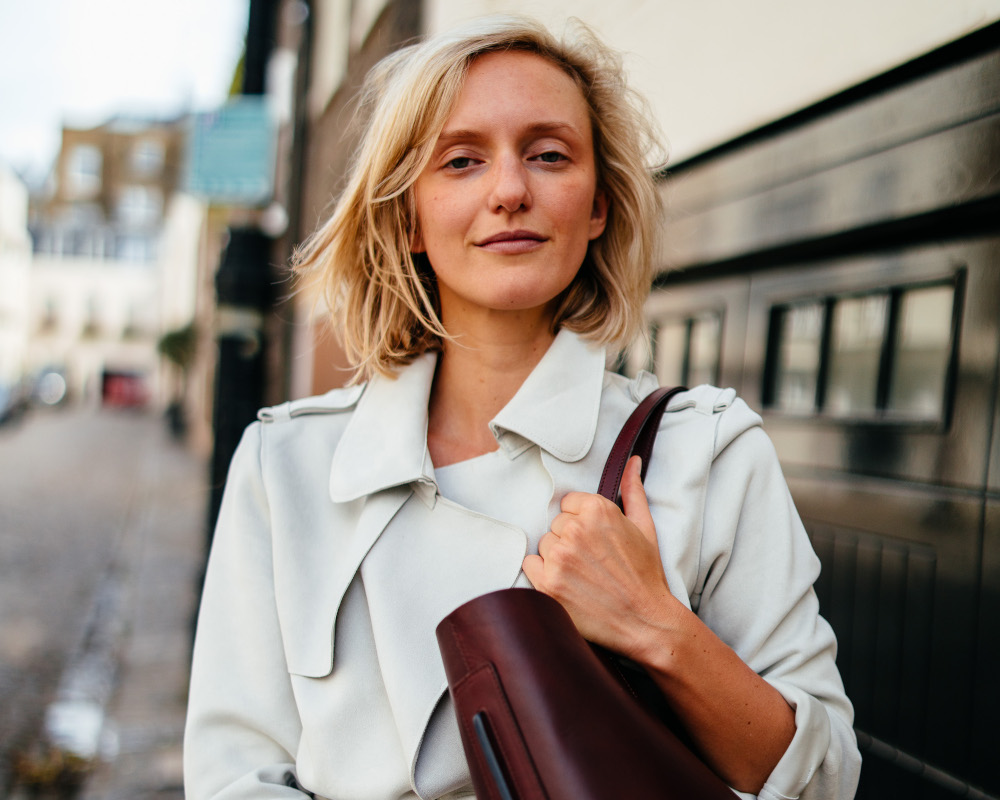
What challenges have you had to overcome in bringing LUXTRA to market?
Money has been one of the biggest challenges – working out where to spend the budget for the most impact. At times I’ve also struggled to keep my morale up, but I’m still here and I really do love my work. I find that I need to avoid comparing myself, and LUXTRA, to other brands as I can easily become disheartened when I see how ‘well’ other brands are doing.
High-end luxury designers like Stella McCartney have also embraced this trend, do you see vegan handbags as being a luxury item people will choose over leather because they want to aspire to the values of the brand or because it is more synonymous with luxury?
I very much hope leather alternatives will replace real leather in the luxury industry in time, however I think it will take many years yet. There is a company in the US called VITRO LABS that is growing premium leather in a lab, which I am following with interest. Their technology is still many years away from producing at scale, but I am excited for the long-term implications.
In 2020 LUXTRA proudly certified as a B Corporation – a new type of company that balances purpose with profit. Becoming a B Corporation provides a tangible symbol of LUXTRA’s dedication to using business as a force for good. Do you think more luxury brands should be going down this route and giving back?
I do – especially given the luxury industry’s very healthy margins. They, of all companies, can afford to do so. I really don’t see any arguments as to why they should not give back.
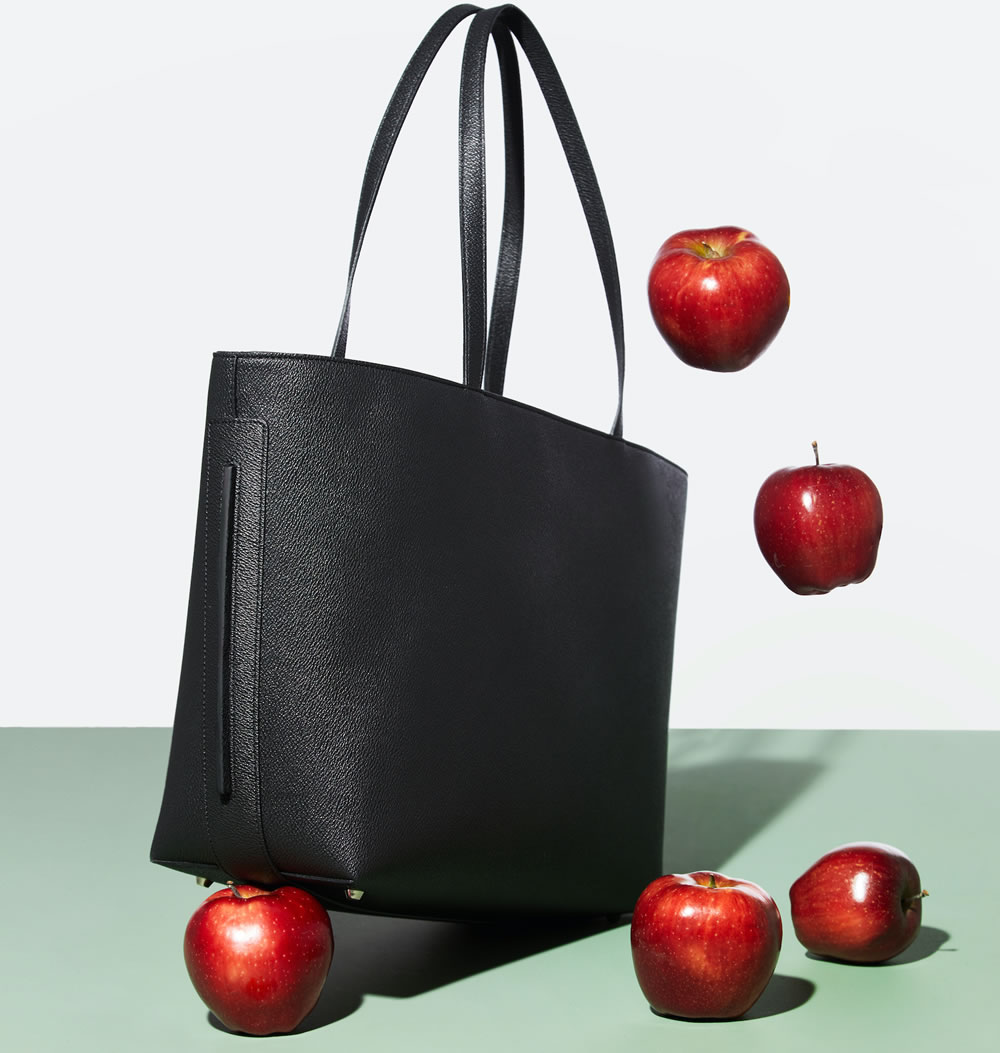
Your mother Sheila inspired you to adopt a vegan lifestyle due to her animal rescue work, how important is it to you to be cruelty-free personally and how did you decide to build a business out of it?
It’s extremely important for me to live a cruelty-free life. It’s actually what gives me the most meaning: I have found my calling, working towards making the world a ‘better place’ in terms of animal welfare. I guess this realisation came to me after countless meals ended in tears because of the terrible meat-free food options I encountered back in 2012/13 (when being vegan was definitely NOT cool).
I decided that the best way to get people to even try was to make a beautiful setting and for the food to look and taste delicious. I like to think I am doing the same thing with LUXTRA: making elegant pieces from innovative, plant-based materials.
What lessons do you think that the luxury market needs to learn to be truly sustainable?
Erm… that killing animals to wear them just isn’t chic. Let’s start there, luxury players!
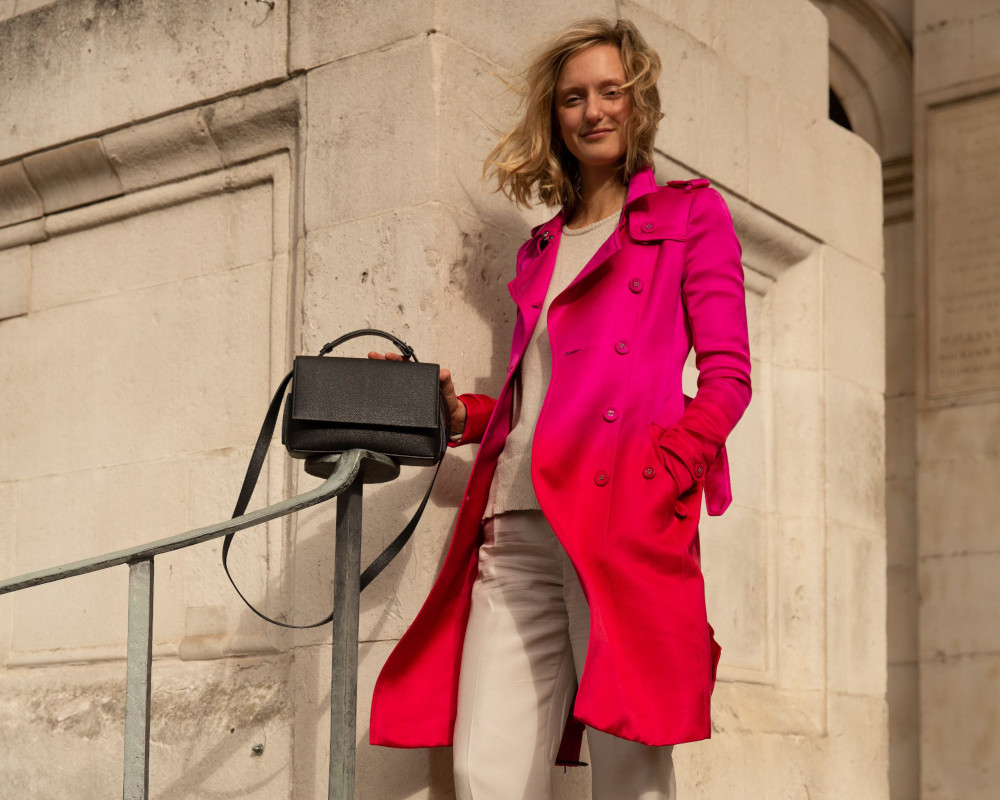
Who do you admire in the business world and luxury sector?
I’ve been following Spanx founder, Sara Blakely, for many years now. I’ve been inspired by the way she has built her business without taking external funding. That’s a big dream of mine. And more recently, in October 2021, Sara sold a majority stake in the business and required that the team handling the sale be women, and that the company have an all-female board of directors. I think Sara’s simply wonderful.
This leads me to your style of entrepreneurship, you have these core values, how do you like to do business?
I would like to be ‘tougher’ but my style is very collaborative, I try to understand where manufacturers, staff, suppliers are coming from and to find a win-win for us both.
What is next for LUXTRA?
Personally, I have some revenue goals I’d like to hit this year, and I’m also delegating more and more which is fantastic. In terms of products – I’d love to start working with MIRUM – a next-generation plant-based ‘leather’ that has no plastic. The big issue there, however, is that it’s a lot more expensive than the materials I currently use.












